I am a native of Meijiawu in Hangzhou's West Lake, as my name suggests. My father named me after the Meijiawu by the Qiantang River. My father, Lu Zhenghao, gave me my name, and I turned his name into a brand. Today's story begins with my father, Lu Zhenghao.
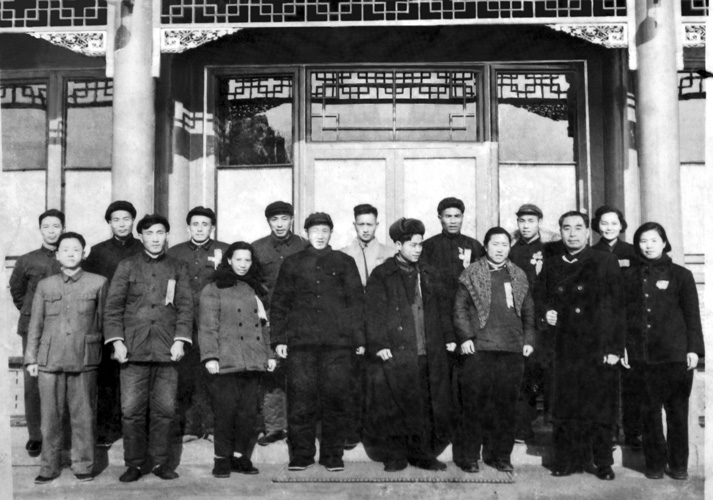
In 1933, my father was born in Meijiawu, a famous tea village deep in the West Lake mountains of Hangzhou. Born and raised in Meijiawu, his life was deeply rooted there. Meijiawu's climate and soil conditions are ideal for growing West Lake Longjing tea. However, in the early years of the People's Republic, Meijiawu's tea gardens covered only a few hundred acres, with low yields and poor efficiency.
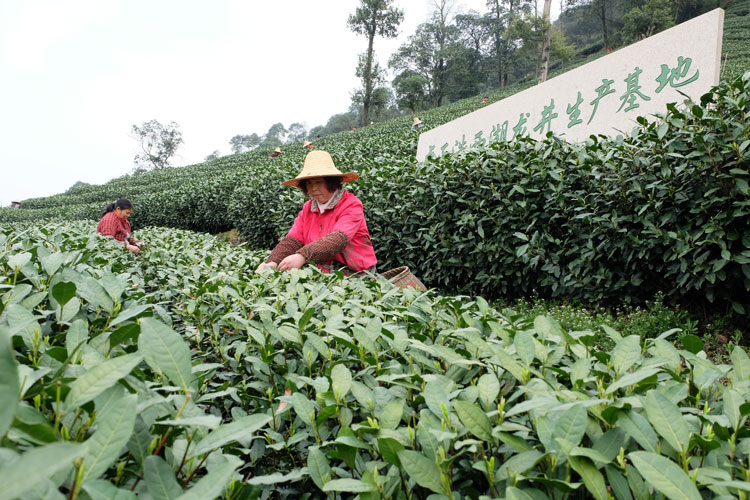
After the founding of New China, Meijiawu, like millions of rural areas nationwide, began the arduous journey of recovery and development. In 1951, my father joined the Communist Party of China. In 1952, he was elected as the first Party branch secretary of Meijiawu, dedicating his youth to the village and West Lake Longjing tea. He was 19 that year. Starting in 1957, Premier Zhou Enlai made Meijiawu a contact point for guiding rural work nationwide, visiting five times to research and guide production. A tea lover, Premier Zhou paid special attention to the production of West Lake Longjing tea in Meijiawu and placed high hopes on it. In 1958, during a meeting with cooperative representatives, Premier Zhou advised my father, then the village Party branch secretary: "Plant tea wherever possible in Meijiawu, because tea is evergreen. Planting tea itself is greening. It’s beautiful and increases income—nothing could be better." Under Premier Zhou's guidance, my father led the villagers in expanding tea cultivation and innovating traditional tea-making techniques. Through years of hard work, Meijiawu's tea production flourished, with tea gardens expanding to over 2,000 acres and electric woks replacing wood-fired ones, greatly improving efficiency.
In the following years, honors poured in. He was named a National Labor Model and a Youth Socialist Construction Activist, hosted foreign dignitaries, and earned the villagers' respect. My father received lofty accolades but also endured severe trials.
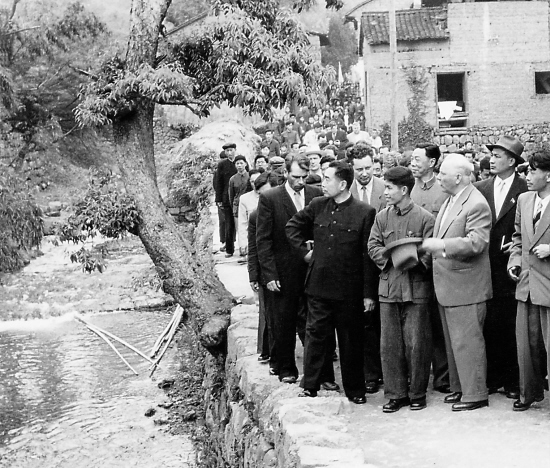
As village Party branch secretary, my father was incorruptible and devoted, never leveraging his honors for personal gain. He often used family resources to support the village, enduring hardships with his family.
In 1966, the Cultural Revolution began, and Meijiawu was swept into the turmoil. As Party branch secretary, my father suffered persecution, including confinement, humiliation, and three years of wrongful imprisonment.
In 1986, the eighth year of reform and opening-up, due to imperfect market economic systems, my father was sentenced to two years for "speculation and profiteering" in a tea trade case. He was released after seven months, exonerated.
These two wrongful imprisonments took a heavy toll on my father's health. In 1987, three months after his release, he suffered a sudden cerebral hemorrhage and was paralyzed. Four years later, in 1991, he passed away at 58.
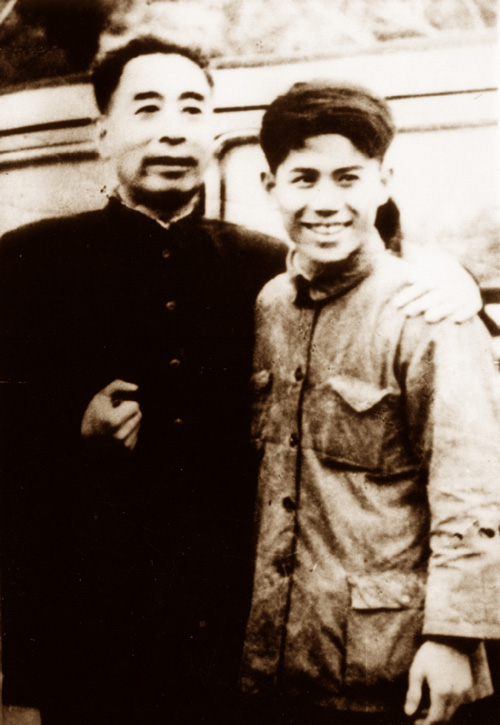
After my father's death, I honored Premier Zhou's wish and my father's legacy by taking up the banner of Meijiawu West Lake Longjing tea, establishing a brand in his name.
The early days of entrepreneurship were tough. In the 1990s, we first expanded to Beijing. Without brand recognition, we focused on quality. Fresh tea leaves were airlifted daily from Hangzhou to Beijing (to meet freshness requirements, we took hard-seat trains for 20–30 hours between the cities). The next day, we hand-roasted and sold the tea at upscale stores like Yansha, Wangfujing Department Store, and Friendship Store. This costly, low-profit effort lasted over a decade. Many questioned our stubbornness, saying we weren’t cut out for business. I never explained—I knew what I was upholding and what I carried forward.
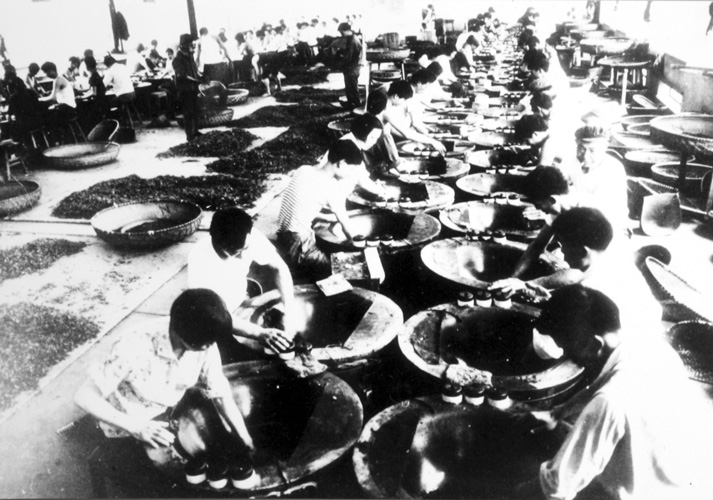
In the early 2000s, with capital and brand recognition from our Beijing efforts, we opened flagship stores nationwide, completing our offline presence. My team and I ended our "Beijing drift" and returned to Meijiawu.
In 2010, we caught the e-commerce wave, opening flagship stores on major platforms. Though late to the game, our quality quickly made us a top seller.
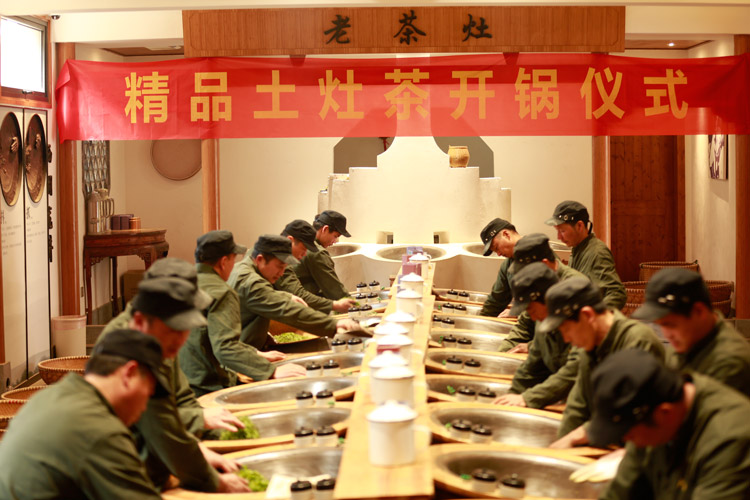
Today, Lu Zhenghao is a leading agricultural enterprise in Hangzhou and a famous trademark. Our production and sales rank among the industry's best, with handmade West Lake Longjing tea setting the standard. Our product line has expanded from Longjing to green tea, black tea, herbal tea, Pu'er, and oolong, transforming us into a comprehensive tea company.
This year marks the 25th anniversary of my father's passing. Through challenges and temptations, I’ve never forgotten his adage: "Making tea is like being a person." Quality remains our cornerstone. I am a businessperson, but first and foremost, a tea person—a tea person’s integrity must never be compromised.
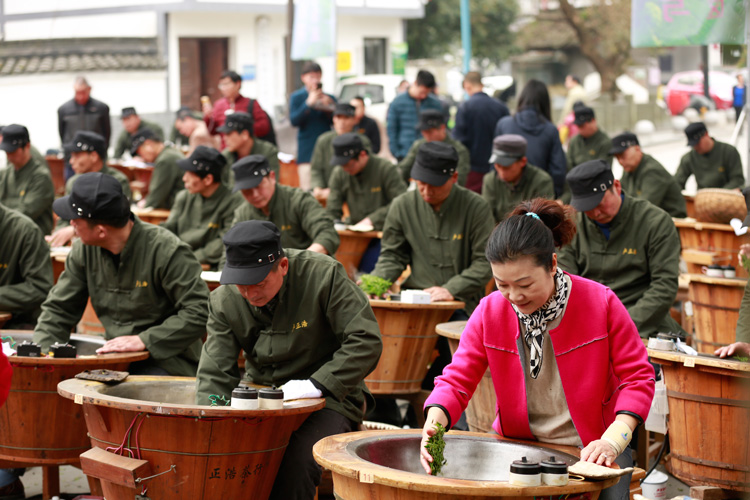
From one tea person to a tea enterprise, over 80 years of change have passed, but the heart of tea—sincerity and excellence—endures.
This is my story, and Lu Zhenghao's story. Seek authenticity, discover fine tea—Lu Zhenghao awaits your visit.